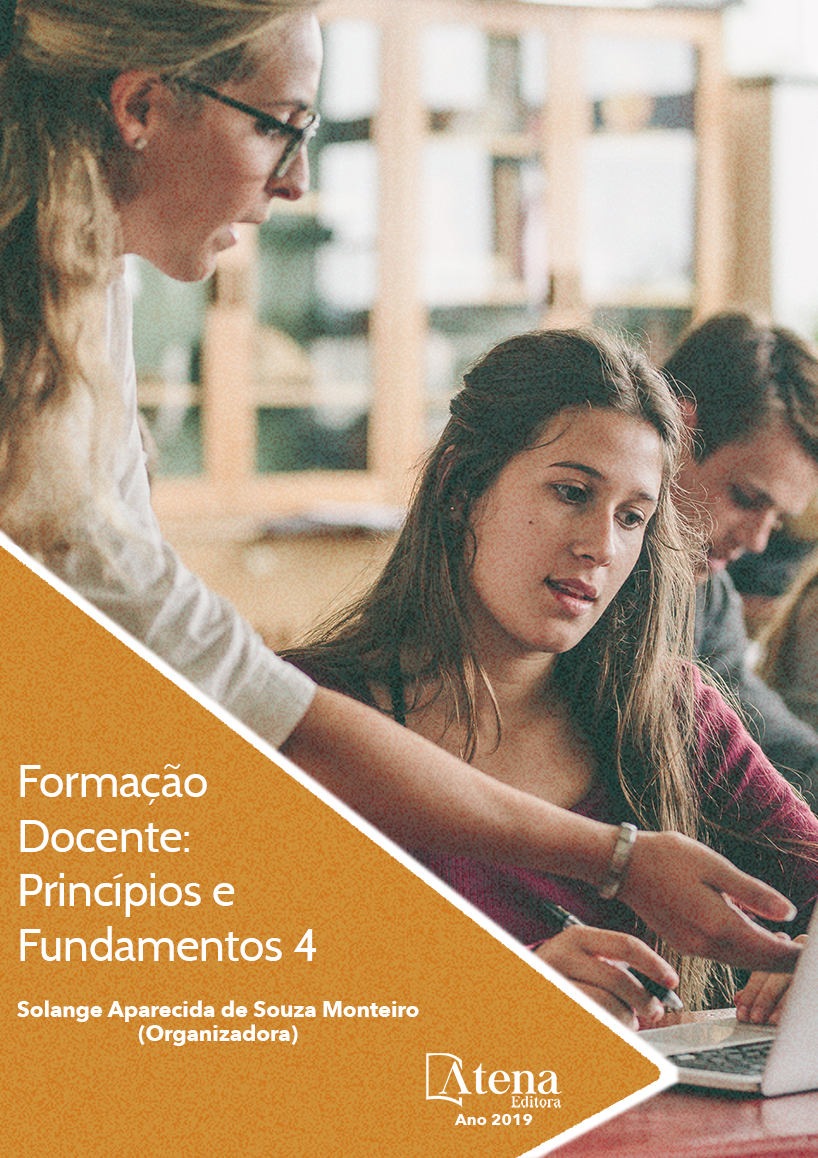
FORMAÇÃO CONTINUADA DE PROFESSORES: REFLEXÕES A PARTIR DA ANÁLISE DO AGIR DO COORDENADOR PEDAGÓGICO
Este artigo objetiva discutir a
formação continuada de professores a partir
da interpretação do agir do coordenador
pedagógico, profissional responsável por
fomentar esse processo na escola. Esta
interpretação decorre de uma análise textual
de diários de campo cujos temas centrais são
considerações avaliativas sobre o agir de duas
coordenadoras pedagógicas (doravante C1 e
C2) participantes de uma pesquisa de mestrado.
Os textos foram produzidos pela professorapesquisadora após vivenciar a formação
continuada em reuniões designadas como
Hora de Trabalho Pedagógico Coletivo (HTPC),
denominação da rede municipal de Ensino
Fundamental I, de uma cidade do noroeste
paulista onde ocorreu a investigação. Segundo
a legislação do município pesquisado, esse
momento é um espaço coletivo de formação
continuada de educadores e de desenvolvimento
da prática docente por meio de estudos,
discussões e reflexões sobre o currículo,
considerando as demandas dos professores
mediante às metas da escola e melhoria do
desempenho dos alunos. A análise dos diários
apoiou-se nos aportes teórico-metodológicos do
Interacionismo Sociodiscursivo (BRONCKART
1999, 2006, 2008), (BRONCKART; MACHADO,
2004 e 2009), na teoria polifônica da enunciação
de Ducrot (1984) e na categorização do agir
proposta por Mazillo (2006). Assim, fizemos
uma organização temática dos diários, após
realizamos uma categorização do agir das
coordenadoras, em seguida analisamos as
vozes mobilizadas pela instância de enunciação
e por fim exploramos as modalizações. Os
resultados apontam que as vozes mobilizadas
pela instância enunciativa dos diários de campo
consideram a HTPC como um momento sem
características específicas. A respeito de
C1, uma das coordenadoras envolvidas na
pesquisa, as vozes enunciativas indiciam que
ela não possui uma imagem clara sobre esse
momento de formação do qual é uma das
responsáveis, fato este relacionado, de acordo
com as análises, com a imprecisão ou imposição
das prescrições recebidas para desenvolver seu
trabalho. Os diários de campo também indicam
uma ausência de discussões embasadas em
conhecimento científico durante esse momento
de formação continuada. Este artigo contribui
para refletir sobre a formação continuada do
professor, pois acredita-se que a mediação por
parte do coordenador requer dele muita clareza
e coerência a respeito das características de
seu trabalho. Assim, ele poderá contribuir com
o desenvolvimento do professor por meio do momento de formação continuada do
qual é um dos principais fomentadores.
FORMAÇÃO CONTINUADA DE PROFESSORES: REFLEXÕES A PARTIR DA ANÁLISE DO AGIR DO COORDENADOR PEDAGÓGICO
-
DOI: 10.22533/at.ed.7121930053
-
Palavras-chave: Formação de professores, Hora de Trabalho Pedagógico Coletivo, Interpretação do agir.
-
Keywords: Teachers training, Collective Pedagogical Work Time, Act Interpretations
-
Abstract:
This paper aims to discuss the continuing training of teachers from the
interpretation of the action of the pedagogical coordinator, professional responsible for
enhancing this process in the school. This interpretation arise from a textual analysis
of field journals whose central themes are evaluative considerations about the actions
of two pedagogical coordinators (hereafter referred to as C1 and C2) participating in
a master’s degree research. The texts were produced by the teacher-researcher after
experiencing the continued training in meetings designated as Collective Pedagogical
Work Time (HTPC), denomination of the municipal network of Basic Education I, of
a city of the northwest of São Paulo where the investigation took place. According to
the legislation of the municipality researched, this moment is a collective space for the
continuing education of educators and the development of teaching practice through
studies, discussions and reflections on the curriculum, considering the demands of the
teachers through the school goals and performance improvement from the students.
The analysis of the diaries was based on the theoretical-methodological contributions
of Socio-discursive Interactionism (BRONCKART 1999, 2006, 2008), (BRONCKART,
MACHADO, 2004 and 2009), Ducrot’s polyphonic theory of enunciation (1984) by
Mazillo (2006). Thus, we did a thematic organization of the diaries, after performing
a categorization of the act of the coordinators, then we analyzed the voices mobilized
by the instance of enunciation and at last we explored the modalizations. The results
indicate that the voices mobilized by the enunciative instance of the field journals
consider HTPC as a moment with no specific characteristics. Regarding C1, one of the
coordinators involved in the research, the enunciative voices indicate that she does
not have a clear image about that moment of formation of which she is one of the
responsible ones, fact that is related, according to the analyzes, with the imprecision
or imposition of the prescriptions received to carry out their work. Field journals also
indicate an absence of discussions grounded in scientific knowledge during this time
of continuing education. This article contributes to reflect on the teacher’s continuing
education, since it is believed that mediation by the coordinator requires him much
clarity and coherence regarding the characteristics of his work. Thus, it can contribute
to the development of the teacher through the moment of continuous formation of which
he is one of the main trainers.
-
Número de páginas: 15
- Neuraci Rocha Vidal Amorim


